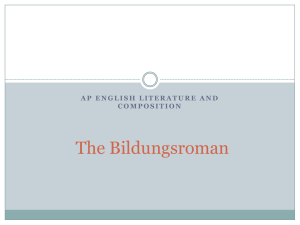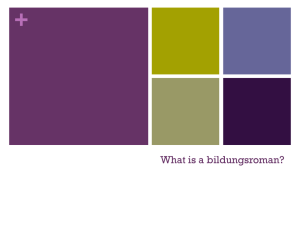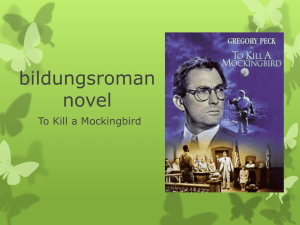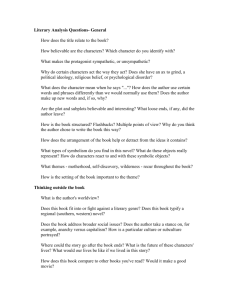Literary Terms for English 200 Term: bildungsroman
advertisement
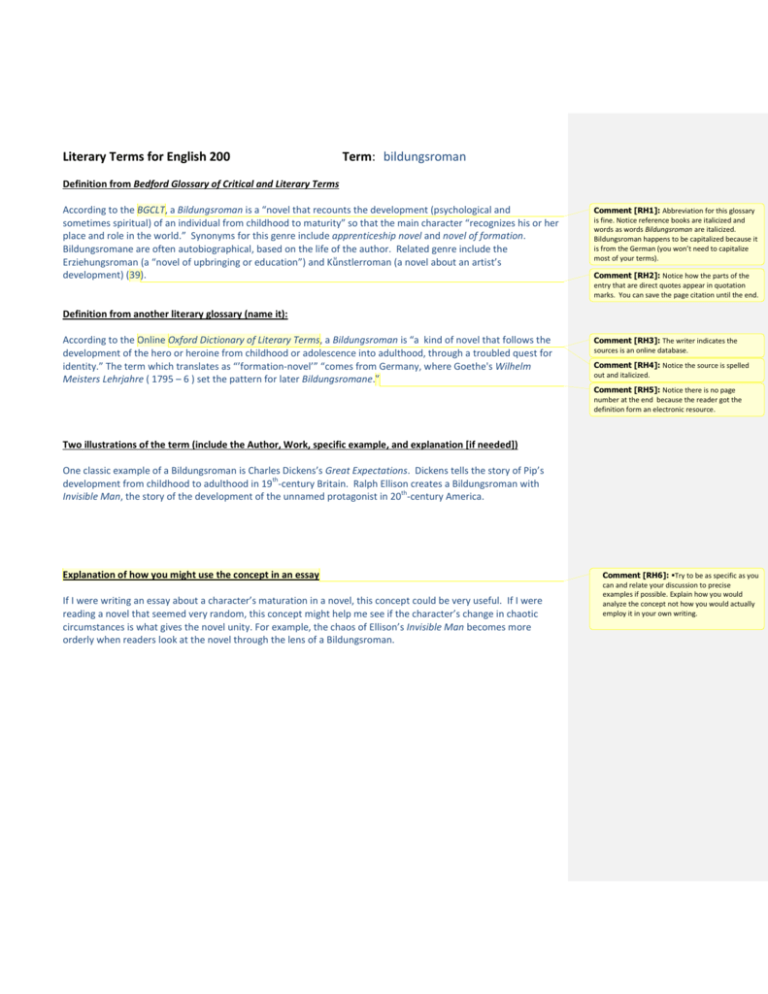
Literary Terms for English 200 Term: bildungsroman Definition from Bedford Glossary of Critical and Literary Terms According to the BGCLT, a Bildungsroman is a “novel that recounts the development (psychological and sometimes spiritual) of an individual from childhood to maturity” so that the main character “recognizes his or her place and role in the world.” Synonyms for this genre include apprenticeship novel and novel of formation. Bildungsromane are often autobiographical, based on the life of the author. Related genre include the Erziehungsroman (a “novel of upbringing or education”) and Kṻnstlerroman (a novel about an artist’s development) (39). Comment [RH1]: Abbreviation for this glossary is fine. Notice reference books are italicized and words as words Bildungsroman are italicized. Bildungsroman happens to be capitalized because it is from the German (you won’t need to capitalize most of your terms). Comment [RH2]: Notice how the parts of the entry that are direct quotes appear in quotation marks. You can save the page citation until the end. Definition from another literary glossary (name it): According to the Online Oxford Dictionary of Literary Terms, a Bildungsroman is “a kind of novel that follows the development of the hero or heroine from childhood or adolescence into adulthood, through a troubled quest for identity.” The term which translates as “’formation-novel’” “comes from Germany, where Goethe's Wilhelm Meisters Lehrjahre ( 1795 – 6 ) set the pattern for later Bildungsromane.” Comment [RH3]: The writer indicates the sources is an online database. Comment [RH4]: Notice the source is spelled out and italicized. Comment [RH5]: Notice there is no page number at the end because the reader got the definition form an electronic resource. Two illustrations of the term (include the Author, Work, specific example, and explanation [if needed]) One classic example of a Bildungsroman is Charles Dickens’s Great Expectations. Dickens tells the story of Pip’s development from childhood to adulthood in 19th-century Britain. Ralph Ellison creates a Bildungsroman with Invisible Man, the story of the development of the unnamed protagonist in 20th-century America. Explanation of how you might use the concept in an essay If I were writing an essay about a character’s maturation in a novel, this concept could be very useful. If I were reading a novel that seemed very random, this concept might help me see if the character’s change in chaotic circumstances is what gives the novel unity. For example, the chaos of Ellison’s Invisible Man becomes more orderly when readers look at the novel through the lens of a Bildungsroman. Comment [RH6]: Try to be as specific as you can and relate your discussion to precise examples if possible. Explain how you would analyze the concept not how you would actually employ it in your own writing.
